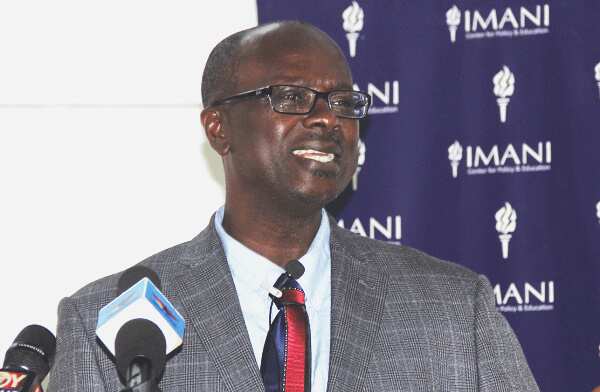A fellow at the Ghana Center for Democratic Development (CDD-Ghana), Professor Stephen Kwaku Asare, popularly known as Kwaku Azar, has asked the Electoral Commission (EC) to carefully strike the balance between its reason for proposing that the closing time of the 2024 polls be reduced to 3pm and the key feature of a democracy, which is to let people vote.
He says just as the EC’s reason for advocating for the closure of the polls early to allow collation and counting in a transparent environment, it should bear in mind that the same act can disenfranchise many eligible voters.
According to the Professor, the latter could cause more damage to Ghana’s system of governance since “the key feature of an electoral system is to let people vote.”
His comment comes on the back of some challenges encountered at the Tuesday, December 19, 2023 elections where the EC had to postpone some of the polls to Thursday, December 21.
Speaking on the issue with Alfred Ocansey on TV3’s Ghana Tonight, Prof. Kwaku Azar noted that the election management body’s reason for wanting to close the polls early is not backed by any evidential fact but rather based on an observation.
He says there are procedures that need to be followed if an agency wants a law to be passed, and that is something the Jean Mensa-led EC should consider.
“So, you have to carefully strike the balance between this transparency and disenfranchising people. The EC does not provide any data to support her stance beyond observing that in 2020 about 70 percent of the voting centers were empty at about 1 PM, that is not evidence, that is a casual observation, That was a covid era and then here there is a chance of many people showing up at 4 or at 5 depending on their work schedule.
“So, it triggers an important question about the way we make laws or subsidiary legislations in this country. We’ve been doing this constitutional business for 30 years and one of the most important things in a constitutional regime is the administrative state and by that, I mean agencies, authorities and so on that make laws –what we call subsidiary legislation. You have the laws that are made by Parliament based on statutes –we all see the process and so on. But the bulk of the laws are made by these agencies in the form of subsidiary legislations and Article 23 and 296 requires that those laws before they are made follow some process,” he indicated.
Explaining the processes, Prof. Asare said the Commission cannot merely make a proposal but should rather “put it in writing –exposure draft, make a draft and circulate to all stakeholders” and hold a hearing for them to make additions and deductions, and “after those hearings, then the EC members vote on the proposal and then they write on the rationale that is taken.”
He says when that is done, the entire state will come at an agreement where the EC’s transparency and would be obtained as well as getting every qualified voter to vote.
READ ALSO: Closing polls at 3pm: ‘EC is under obligation to restore its credibility’ – NDC’s Gbande












